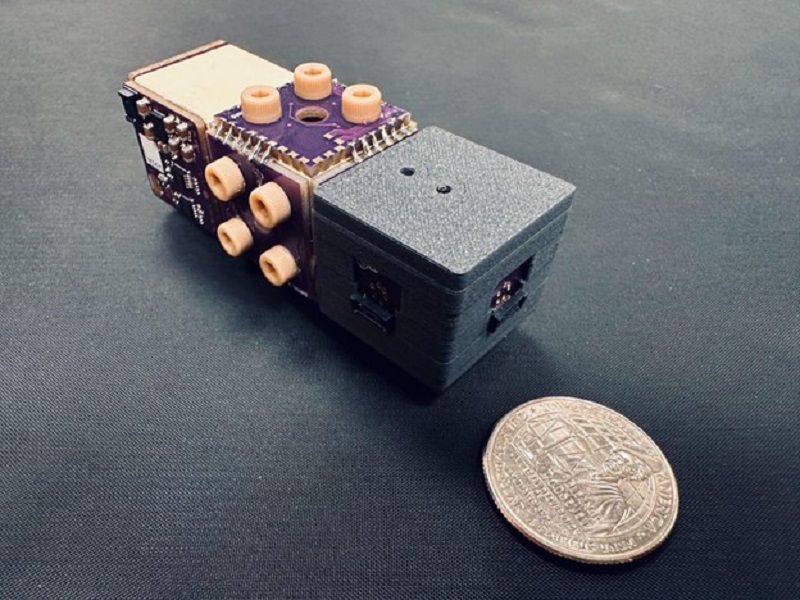Quantum technology startup Q-CTRL says it has achieved commercial quantum advantage with a new quantum magnetic navigation system that outperformed the best of conventional GPS back up systems in real-world trials.
The Sydney-based Q-CTRL claimed the world-first on Monday, releasing new research that shows the system as reducing positioning uncertainty by up to 50x during flight trials, when compared to velocity-aided inertial navigation systems (INS).
The system also outperformed INS by over 6x in ground-based vehicle testing – the first-ever successful demonstration of magnetic navigation in any ground vehicle, according to the firm.
Q-CTRL has been working to develop sensors that deliver a quantum-assured navigation capability to military platforms for the past two years, having secured at $1 million contract with Defence in 2023 to reduce its reliance on GPS navigation.

Dubbed Ironstone Opal, the system uses quantum sensors to detect otherwise undetectable magnetic ‘landmarks’ (magnetic navigation) on the Earth’s magnetic field to determine positioning.
The system is passive and immune to jamming, meaning it can be used in GPS-denied environments – areas where GPS signals sent from satellites can not reach an earth-bound GPS receiver.
GPS jamming is used on the battlefield and, increasingly, as a form of economic sabotage, with Q-CTRL citing reports that more than 1,000 flights are now being disrupted each day.
Having developed a system small enough to fit on a small fixed-wing drone, Q-CTRL conducted a series of real-world trials to overcome previous testing efforts, which had been “limited by magnetometer performance and interference due to platform noise”, it said.
The airborne trials, conducted at 19,000 feet, showed “superior performance” for Ironstone Opal, delivering “up to ∼46× better (lower) positioning error than the velocity-aided INS” over a 500km flight.
It also consistently achieved “at least 11× advantage over the INS across varying conditions, altitudes and flight patterns” thanks to its “software-ruggedisation hardware”, according to the research paper.
Q-CTRL said the best trials achieved “~0.01 per cent final positioning uncertainty”, placing the system about that of other GPS backups, adding that both the in-flight and ground trials achieved quantum advantage.
Quantum advantage is when a quantum solution outperforms its competitive classical counterparts under realistic conditions in a commercially relevant task.
Q-CTRL founder and chief executive Michael Biercuk said the accuracy achieved during the ground and airborne trials was “comparable to a sharpshooter hitting a bullseye from 1,000 yards away”.
But he explained that because the system allows a vehicle to “position itself accurately irrespective of how far its travelled, by analogy that sharpshooter can hit the same bullseye no matter how far away they move from the target”.
“At Q-CTRL, we’re thrilled to be the global pioneer in taking quantum sensing from research to the field, being the first to enable real capabilities that have previously been little more than a dream,” he said.
“This is our first major system release and we’re excited that there is much more to come as we introduce new quantum-assured navigation technologies tailored to other commercial and defense platforms.”
Do you know more? Contact James Riley via Email.

